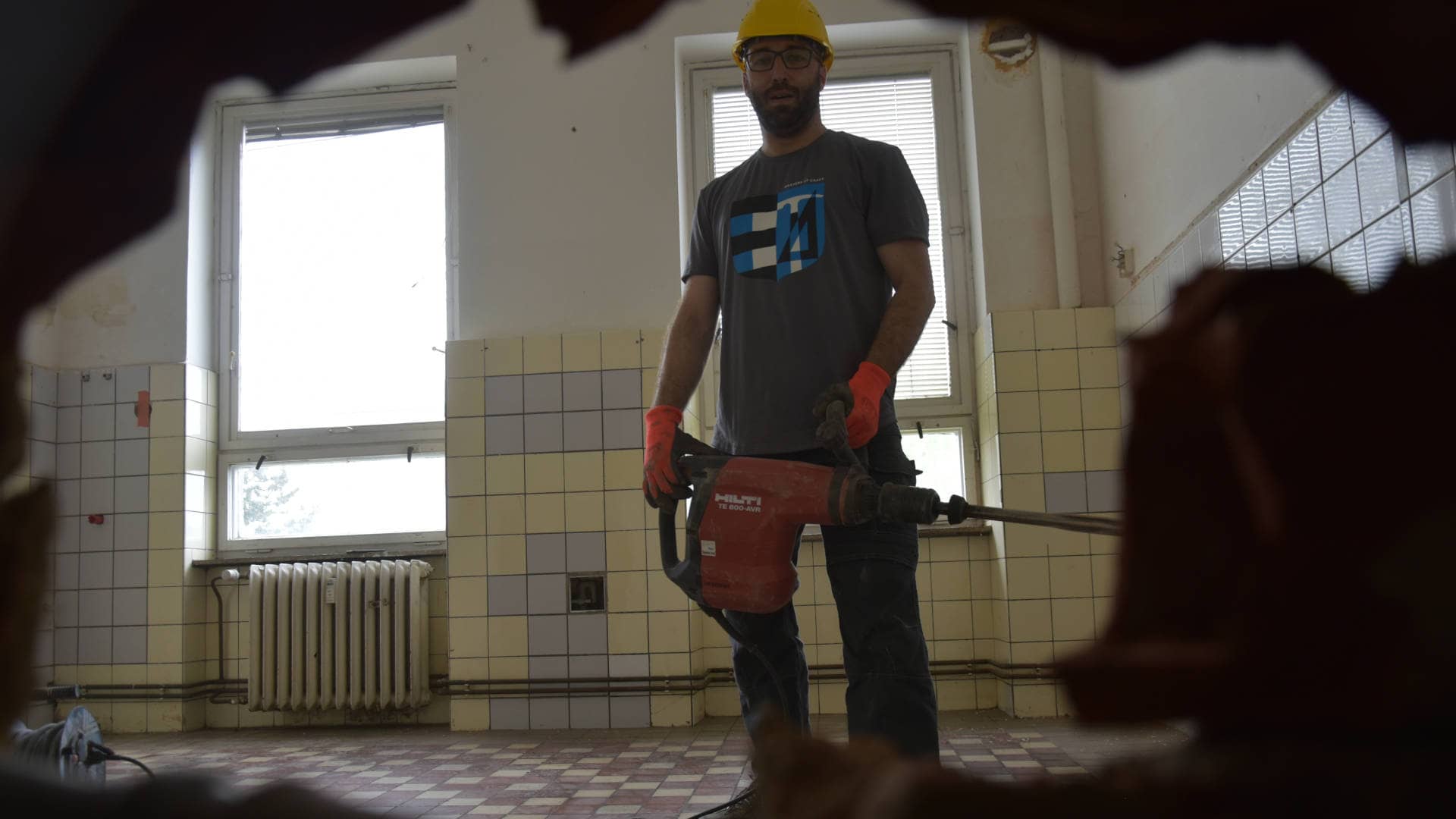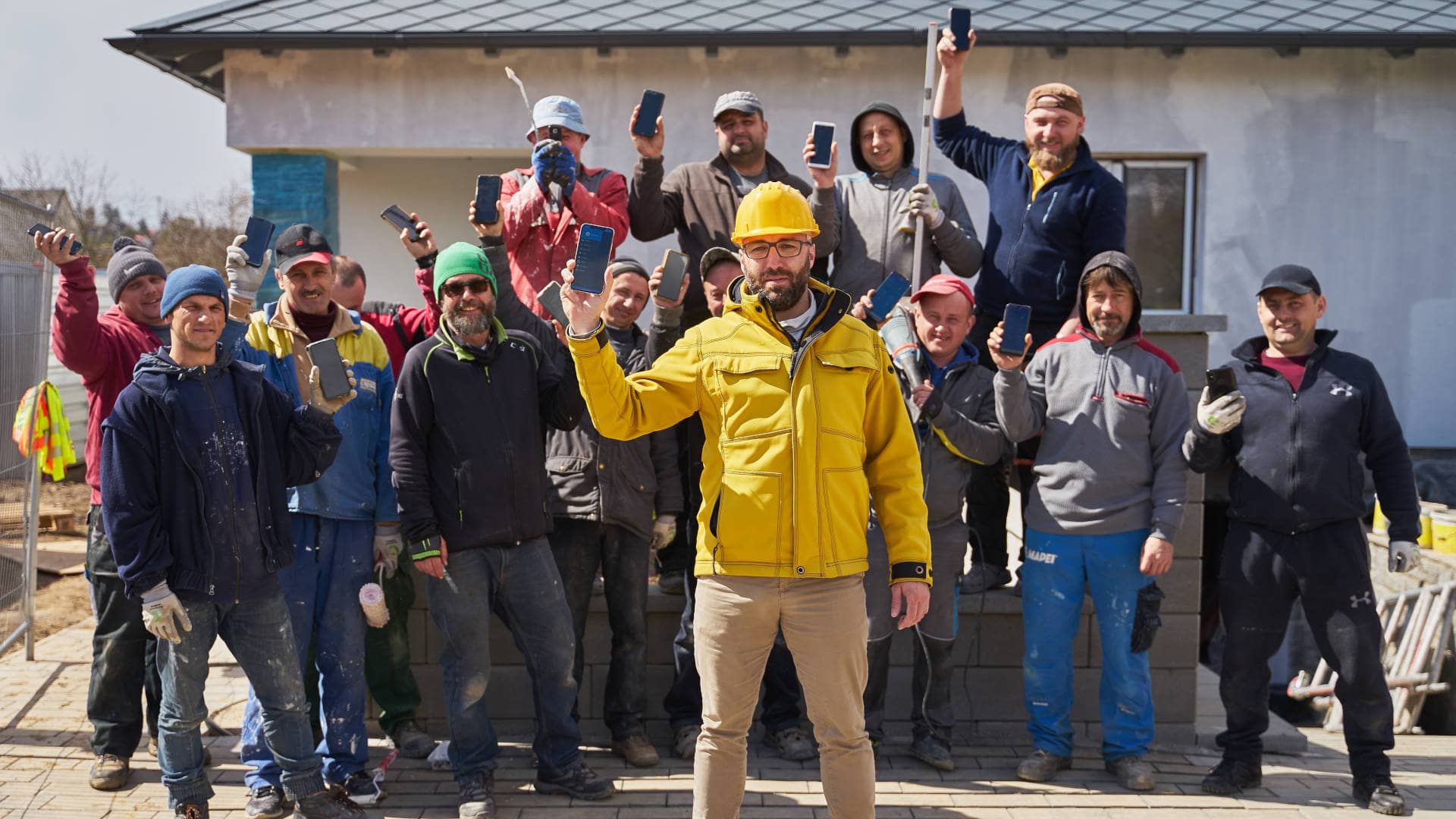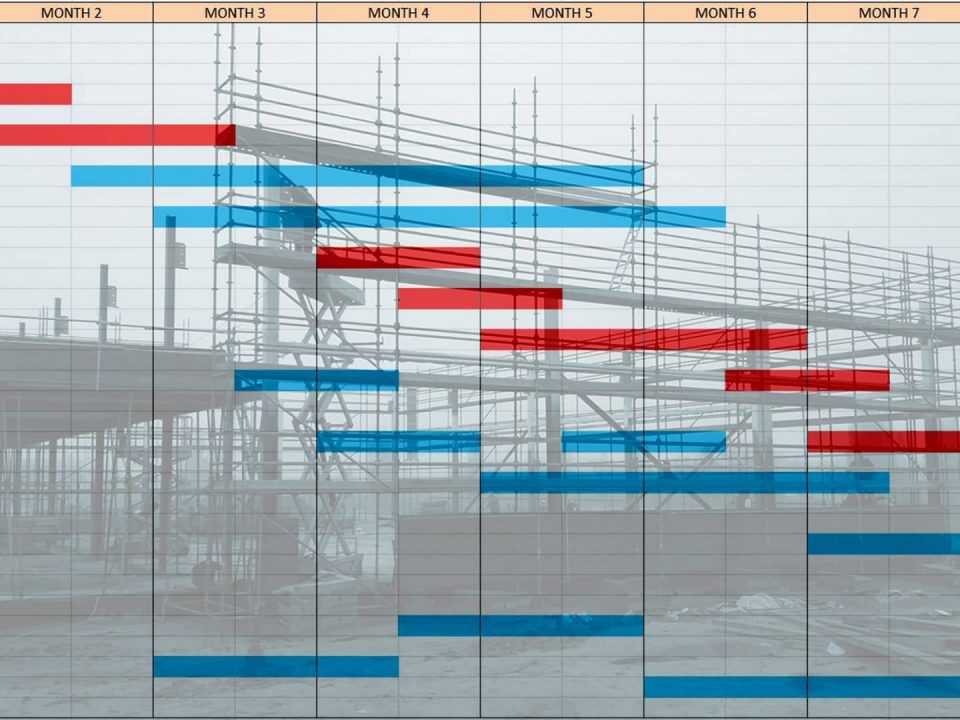Josef Beneš:
What did 20 years of experience in the construction industry give me?
A sympathetic builder from the show Facmani, who always knows what to do - that's Josef Beneš, the founder of the Stavario app and the construction company Stav-idea. He has been around the construction site since he was 14 years old and has also had a crisis in which he thought he would quit. But in the end, he preferred to create the construction application Stavario. Read how Josef communicates with investors and what he advises young starting colleagues.

I dug the foundations for four family houses with my hands, I was a laborer and a foreman. This is priceless for the head of the company.
Josef, every week you are on the program Fachmani on TV Prima. Can the viewer take it as a real event on the construction site, or is it more of a show?
It's very real. I act as the main construction manager and when something goes wrong we will post it. Everything is according to reality. So usually the crew comes in and they don't even know what we're going to shoot. We decide on the spot how the construction is progressing and what we will discuss in the show.
Have you ever had a really big mess in Fachmany?
No, just normal problems. For example, we accidentally felled a tree that wasn't supposed to come in until a few months later due to dormancy rules. The workers were active, but they mistook a willow for a spruce. For example, we also kicked the gas. These are annoying things, but every builder is used to them, so it didn't throw me off.
You seem pretty calm, but what if you get into a heated argument with an investor? In one part, for example, you deal with the demolition of marble tiles in the bathroom. The investor wants to preserve them, you advocate demolition.
Yes it is true. The point was that we can buy the marble again and you won't see the difference between the old and the new floor. We needed to do the proper waterproofing under the marble to make sure everything would be perfect. That's why I'd rather buy marble at my own expense than deal with a complaint in two years and have an unsatisfied client.
Do you have any tips for builders to communicate well with an investor?
It is important to always give the investor some examples of what can happen. I will return to the marble: even if the investor insists on the original material, I will describe to him what the consequences may be. Like leaking water. And nobody wants to deal with such things in a completely renovated house. Although he will save for the moment because he will keep the existing marble floor. I never want to overwhelm the investor with details, but he must know the possible consequences.
Can you think of any other similar situations from recent times?
Clearly. Recently, I was dealing with painting with an investor. He came up with the idea that he wanted plain white instead of bright. He argued that if he drilled into the wall, it would be easier to erase the marks after rubbing. But I could see on him that he liked the bright shade better after all. Someone just advised him that classics are more practical. So I asked him how many times in the last ten years he had to paint because of repairs at home. Not even once. So we thought we'd paint it a bright color that he likes better. How many times does an investor come up with a similar idea that someone instills in him, and I then prove to him with examples that it is not the right procedure.
So you have to be a bit of a psychologist and watch what the client really wants and what he says he wants.
Exactly. Clients tend to be quite tired by the end of the construction and are willing to compromise. Workers often push them into these to save work. And I'm here to step in and tell the laborer or craftsman to redo it. Because the client will then watch at home every day how stupidly it is done. And he will be angry.

Digging foundations by hand? A frightening experience for some, Josef got a kick out of it
You started with construction at the age of fourteen, when you manually dug the foundations of four family houses. How is it possible that this experience did not discourage you?
It was a part-time job that I got through a tradesman - a builder of investment houses. Sure, my back hurt, I had calluses, but I saw a lot of work done and the most important thing was that people praised me. I didn't slack off and did the work honestly, so the praise kicked me in. I also gained experience while building a house with my dad, I tried a lot of things there.
What about studying?
I am a trained designer of the technical equipment of buildings. I learned how to read projects at school. I know what brands look like, I can imagine a project in 3D, even if I can only see it in 2D. But practice gave me the most.
Can even today a skilled layman build a house, as it was common a few decades ago?
Definitely yes. You can find how-tos, videos and everything you need online. Building a family house according to the project is not a problem for a person who can read the project. There are so many different materials, procedures and technologies that no one knows everything.

The daily bread of construction managers is stress. At the age of 28, Josef ran out of energy
Before founding your own company, you worked as a chief construction manager and were in charge of large contracts worth tens of millions of crowns. What experiences from that time do you still draw on today?
I worked in small and large companies, worked as a worker, foreman and construction manager. I understood how people in all positions think, what they want, how they work. You sit with others in the shed, talk to each other and find out a lot about them.
I was also a sales representative for a year. But I missed it, I drove around the buildings and saw how life was there. I had to get back to building. But I found out how the store works and how to communicate with customers.
Did it often happen to you in the position of chief construction manager that you were under a lot of stress?
Yes, the stress was extreme. I was terribly annoyed by the procedures that were used in the previous companies, and I wanted to do it differently. Excel was used everywhere and the same data was copied into five different tables. That was horrible. There were mistakes, it didn't fit. At the age of 28, I was completely exhausted and wanted to get into the construction industry. But I couldn't think of anything else I wanted to do, so I started my own construction company.
Do you think it's still the same in companies?
Yes. Now, when I sell the Stavario software, companies show me, for example, the processing of attendance. It's misery. I recently read that the American economy in the construction industry represents around one to one and a half trillion dollars, that is at least 22 billion billion crowns. An insane amount and those companies still work with pencil, paper and Excel. So this situation is not unique to us.
Why do builders still use these old methods?
They are used to it. The economy works, no one needs to innovate. They feel that everything is fine, they are earning and they don't need to earn more. And they are very disappointed with the software they have already tried. I've tried dozens of them myself. But they all work on the principle that the manager supplies the data to the system. And that's useless.
So how is it supposed to work properly?
Everyone, especially workers, must upload data to the system. They enter daily attendance via mobile phone, take pictures of the building, and automatically download weather data. And most importantly, the data is written into all the necessary tables, so nothing is done manually.

Theft is a common reality on construction sites
One of the problems with construction is inefficiency and confusion, the other is fraud. What is your experience with it?
He cheats and steals a lot. The way it works is that the labor boss supplies you with ten people, but you invoice for twenty. The salary of ten non-existent people will be divided between the construction manager, the boss of the workers and the workers themselves. Everyone is satisfied except the owner of the construction company. And if you refuse, no one wants to deal with you because you just won't break up with them.
Are you glad that you gained a lot of negative experiences and only then founded your own company?
Yes. For example, you will only understand the work of a construction manager when you sit in his chair. If I didn't know how it was stolen downstairs, it would be hard for me to prevent it upstairs. A lot of business owners don't even think that someone would dare to steal. And I started thinking about how to run the company better, how to avoid rewriting data into five tables.
So you were also the first customer of Stavario?
Yes. The app exactly meets my needs as a builder and business owner. It solves the entire ecosystem of the building. It's not just a construction diary, or attendance, or tool records. It's all in one system. One data connects to everything. You just know everything.
How has this need to know about everything changed in connection with the corona crisis?
Builders want to reduce costs as much as possible. Therefore, they try to innovate established procedures and ask for our software. I hope that this winter the builders will find time to demo Stavario and run through it when the building is quiet. Because they usually get to the demo at a time when there is the most work and maximum stress. I would like to change that.





